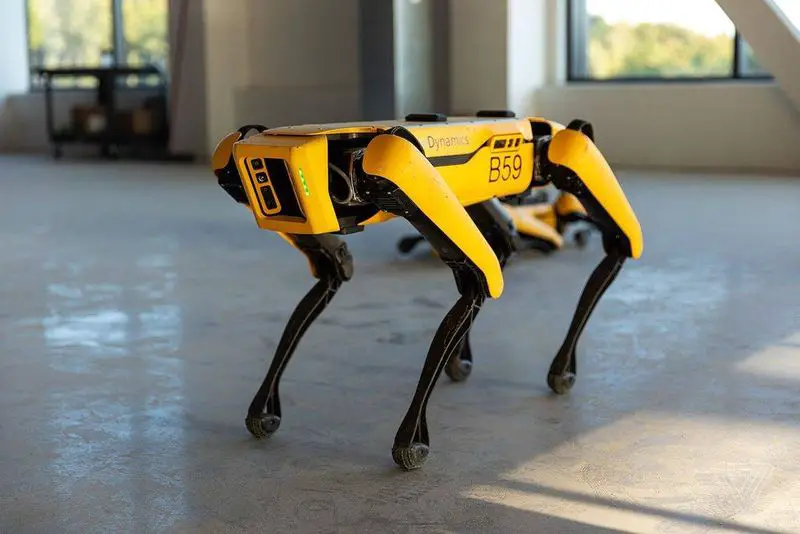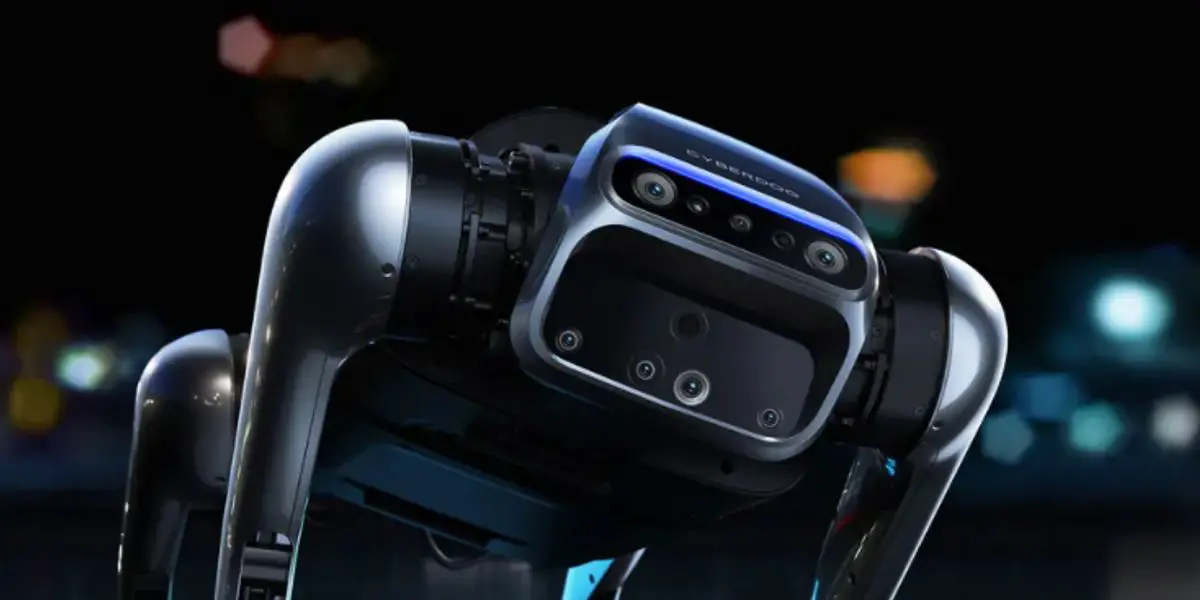Xiaomi presented CyberDog, a robot dog that is a cheaper version of Boston Dynamics. It is intended for developers, as it has an open code so that they can create applications for the machine.
The program runs on a version of NVIDIA’s Jetson Xavier NX, described as the world’s smallest AI supercomputer. According to the Chinese company, CyberDog has eleven sensors on its body, including tactile and ultrasonic sensors. It also has cameras and GPS to interact with its environment.

More features of Xiaomi’s CyberDog
- It trots at 3.2 meters per second (Spot, from Boston Dynamics, did it at 3.9 meters per second).
- It weighs three kilograms (Spot weighed 5.2kg).
- It has three USB-C ports and one HDMI port to customize its hardware.
- LIDAR sensors, panoramic cameras, and searchlights can be added.
- It is so agile that it can perform backflips.
“CyberDog can analyze its environment in real-time,” Xiaomi explains in its release, “create navigation maps, plot its destination and avoid obstacles.”
“It can follow its owner,” responding to voice commands. It can also be controlled with a smartphone app.
Moreover, it can identify posture and track human faces: if it finds itself in front of a group of people, it can go to its owner without major complications.
It is not known when CyberDog will be available for sale.
As we have said, one of the big differences with Spot, the Boston Dynamics robot dog, is the price. While Spot costs about $75,000 dollars, to have CyberDog you only have to pay 1,540 USD. The point is that it is not a general sale product, but will be sold in limited quantities.

Only one thousand devices will be sold, intended especially for “Xiaomi fans, engineers and robotics enthusiasts, to jointly explore the immense possibility of CyberDog”.
That is, developers would work together with Xiaomi experts, in an open-source community.
Other differences with Spot, the Boston Dynamics dog
At the time, Spot, the Boston Dynamics robot dog, was on trial for police and rescue activities. However, the NYPD gave up on its use due to the terror it caused in communities. Its police name was Digidog.
“He had been misused to fuel discussions about race and surveillance,” said John Miller, NYPD deputy commissioner for intelligence and counterterrorism.

The New York Times noted that the robot dog violated people’s privacy. It was used at several crime scenes and hostage situations.
“I’m glad the Digidog will be put aside,” Bill Neidhardt, spokesman for Mayor Bill de Blasio, had noted. “(The machine) is creepy, alienating and sends the wrong message to New Yorkers.”
Whether military or law enforcement authorities will use Xiaomi’s CyberDog is unknown at this time, but it is not out of the question. Free programming is conducive to such uses.





